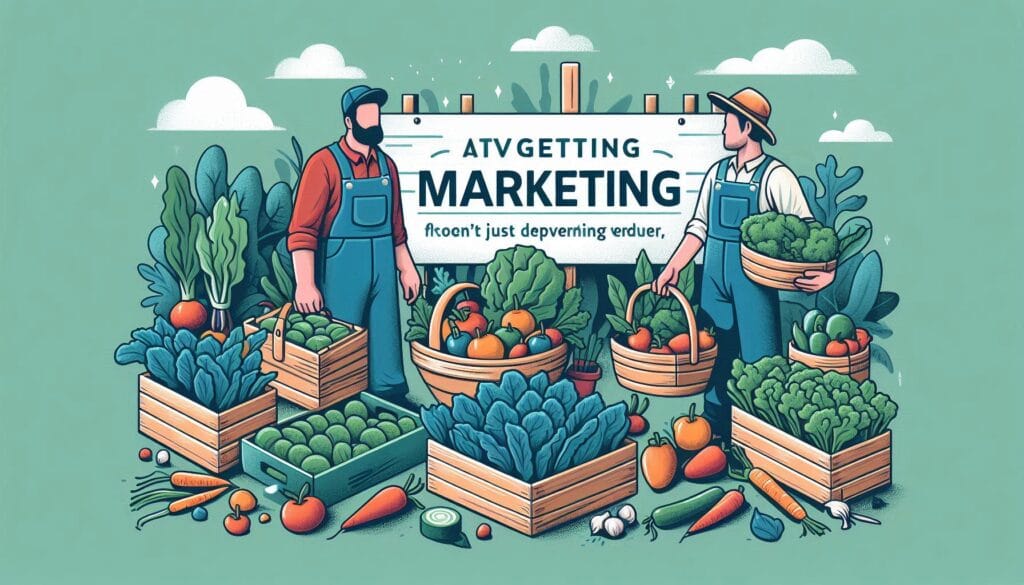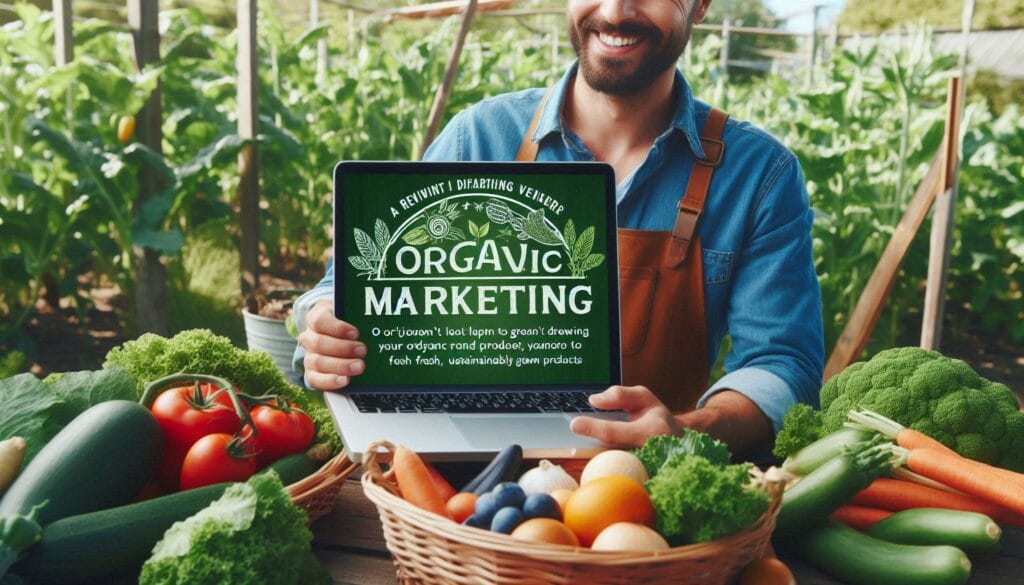Organic farming is a rewarding venture, but success doesn’t just depend on growing high-quality produce. To thrive as an organic farmer, you need effective marketing strategies to reach buyers who value fresh, sustainably grown Organic Produce. This blog will explore various ways to promote and sell your organic produce, ensuring that your hard work gets the recognition it deserves.
Why Marketing Matters in Organic Farming

Unlike conventional produce, organic farming relies on transparency and trust. Farmers must educate consumers about the value of organic goods while competing in an increasingly saturated market. Effective marketing helps:
- Build Trust: Showcase your commitment to organic practices.
- Expand Your Reach: Connect with local and global buyers.
- Boost Profits: Highlight the premium quality of organic products.
Top Strategies to Marketing and Sell Your Organic Produce
1. Understand Your Target Market
Before you start marketing, identify your ideal customers. Organic produce typically appeals to:
- Health-Conscious Consumers: Those seeking nutritious, chemical-free foods.
- Eco-Conscious Buyers: Individuals supporting sustainable farming practices.
- Local Food Enthusiasts: People prioritizing fresh, locally grown organic produce.
2. Create a Strong Brand
Your brand tells the story of your farm and its values. To build a compelling brand:
- Develop a Logo: Design a logo that reflects your farm’s identity.
- Choose a Tagline: Craft a short, memorable phrase (e.g., “Fresh. Organic. Local.”).
- Share Your Story: Highlight your journey, challenges, and commitment to organic farming.
3. Leverage Social Media
Social media is a powerful tool for organic farmers. Use platforms like Instagram, Facebook, and Twitter to:
- Post Regular Updates: Share photos of your produce, farming process, or farm life.
- Engage with Followers: Respond to comments, host Q&A sessions, or run polls.
- Promote Events: Advertise farmer’s Marketing appearances or open farm days.
4. Build an Online Presence
In today’s digital age, an online presence is essential. Consider:
- Creating a Website: Showcase your products, farm story, and contact information.
- Starting a Blog: Write articles on organic farming, recipes, or seasonal produce.
- Offering Online Sales: Set up an e-commerce platform to sell directly to customers.
5. Utilize Farmer’s Markets

Farmer’s markets are excellent for connecting with local buyers. To stand out:
- Display Your Produce Beautifully: Use baskets, signs, and vibrant colors.
- Offer Samples: Let potential customers taste your fresh produce.
- Share Information: Educate visitors about your organic produce methods.
6. Partner with Local Businesses
Collaborating with nearby establishments can expand your reach. For example:
- Restaurants: Supply organic ingredients to farm-to-table restaurants.
- Grocery Stores: Stock your produce in local organic or specialty stores.
- Cafes: Provide fresh fruits, vegetables, or herbs for their menu items.
7. Use Community-Supported Agriculture (CSA)
A CSA program allows customers to subscribe to weekly or monthly produce deliveries. Benefits include:
- Consistent Income: Receive upfront payments from members.
- Stronger Customer Relationships: Build loyalty with regular interactions.
- Reduced Waste: Plan your crops based on subscription demand.
8. Attend Food and Agricultural Events
Expos, fairs, and festivals provide opportunities to:
- Network: Meet other farmers and potential buyers.
- Showcase Your Produce: Introduce your products to a larger audience.
- Gain Insights: Learn about emerging trends and consumer preferences.
9. Highlight Certifications

Organic certifications build credibility and attract buyers. Make sure to:
- Display Your Certification: Include logos on your packaging, website, and booth.
- Explain Its Significance: Educate customers on what the certification entails.
- Renew Regularly: Keep your certification up-to-date.
10. Emphasize Unique Selling Points (USPs)
Differentiate your produce by highlighting features such as:
- Seasonal Variety: Offer unique or limited-time crops.
- Sustainable Practices: Share details about composting, water conservation, or biodiversity efforts.
- Exceptional Quality: Emphasize freshness, flavor, and nutritional benefits.
Marketing Tips for Success
- Be Consistent: Maintain a regular presence online and offline.
- Stay Authentic: Be transparent about your farming methods and values.
- Ask for Feedback: Listen to customers’ needs and preferences.
- Adapt to Trends: Keep up with market changes, such as increased demand for organic snacks or meal kits.
Conclusion
Marketing your organic produce effectively can turn your farm into a thriving business. By understanding your audience, leveraging digital tools, and building strong local connections, you can expand your reach and maximize your impact.

5 Quick Questions and Answers About Marketing Organic Produce
Q1: Why is marketing important for organic farmers?
A: Marketing helps build trust, reach a wider audience, and highlight the value of premium organic produce in a competitive market.
Q2: How can organic farmers connect with their ideal customers?
A: Farmers can identify health-conscious, eco-friendly, and local food enthusiasts as target customers. They can use social media, farmer’s markets, and direct sales to connect with them.
Q3: What are some effective ways to promote organic produce locally?
A: Farmers can attend farmer’s markets, partner with local businesses like restaurants or cafes, and start CSA programs to engage directly with the community.
Q4: How can digital tools help organic farmers market their products?
A: A strong online presence, including a website, social media, and e-commerce platforms, allows farmers to showcase their produce, share their stories, and reach a global audience.
Q5: What’s a simple way to stand out in the organic market?
A: Emphasize unique selling points, such as seasonal variety, sustainable practices, and exceptional freshness, to differentiate your produce and attract loyal customers.


